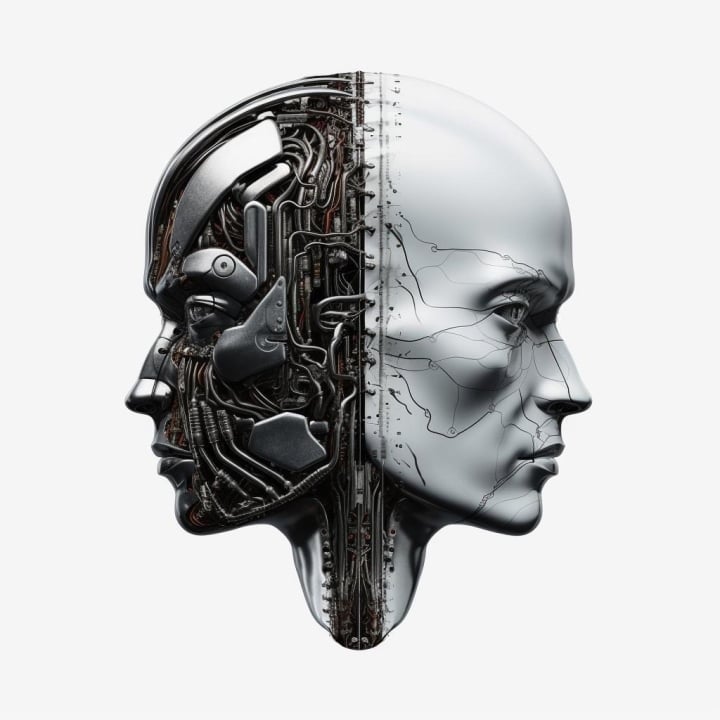At the US Air Force Academy graduation ceremony in early August, US President Biden warned about the power of artificial intelligence (AI), predicting that this technology could "surpass human thinking" in the not-too-distant future. " It's not going to be easy. This is an incredible opportunity, but we have a lot of work to do, " Mr. Biden said.
In a recent interview, Microsoft President Brad Smith said that without human intervention, AI could be turned into a weapon that threatens life: " Every technology that comes into being can become a tool to help humans, but also a weapon. We need to ensure that AI is under human control so that we can slow down or turn things off when needed ."
Microsoft is currently one of the leading companies in the development of artificial intelligence and invested early in OpenAI, the "father" of ChatGPT. The company has spent billions of dollars to research AI applications, integrating this advanced technology into its products, including Bing - a search engine similar to Google Search. Although actively promoting the benefits of AI, Mr. Smith affirmed that Microsoft is aware of the potential risks of using AI, and at the same time, advocates for other companies to "do the right thing".

Whether AI is good or bad depends on how humans control this technology.
Not only applied to daily utilities, artificial intelligence has emerged as a powerful tool in the field of cybersecurity. The emergence of ChatGPT in November 2022 has become the subject of debates about AI, showing the tangible impacts of Neural Network technology and revealing that AI has the potential to destroy industries globally.
One of the discussions surrounding ChatGPT is how cybercriminals are exploiting the technology to increase phishing and malware attacks. In fact, research has shown that hackers can use the tool to create malicious code from single requests to bypass security rules.
At the recent annual Cyber Security Week in Indonesia, security firm Kaspersky introduced the concept of Cyber Immunity, a way to develop IT systems with innate protection capabilities.
“ Cyber Immunity is a technology that represents a security system that is designed to be secure, capable of creating a solution that is virtually unbreakable, minimizing the number of potential vulnerabilities,” said Eugene Kaspersky, CEO of Kaspersky. “Traditional cybersecurity is no longer enough to protect us. We need to revolutionize our defenses to ensure we create a safer digital world .”
The APAC region is currently at the forefront of the AI revolution. A recent IDC study revealed that AI spending in the region will double in three years, from $9.8 billion in 2023 to $18.6 billion in 2026. To improve efficiency and reduce dependence on technology, most local businesses aim to incorporate AI into their business technology portfolios within three years. Currently, the AI market size in the APAC region stands at $22.1 billion and is expected to nearly quadruple by 2028, reaching $87.6 billion.
The IDC report highlights that China, Australia and India are the top three countries for AI spending across the region, with many more to follow. “ This makes it important for us to chart a safe path now, ensuring we can take advantage of this technology without compromising on security, ” added Adrian Hia, Managing Director of APAC at Kaspersky.
Khanh Linh
Source


![[Photo] Panorama of the cable-stayed bridge, the final bottleneck of the Ben Luc-Long Thanh expressway](https://vphoto.vietnam.vn/thumb/1200x675/vietnam/resource/IMAGE/2025/9/30/391fdf21025541d6b2f092e49a17243f)
![[Photo] General Secretary To Lam, Secretary of the Central Military Commission attends the 12th Party Congress of the Army](https://vphoto.vietnam.vn/thumb/1200x675/vietnam/resource/IMAGE/2025/9/30/9b63aaa37ddb472ead84e3870a8ae825)
![[Photo] Solemn opening of the 12th Military Party Congress for the 2025-2030 term](https://vphoto.vietnam.vn/thumb/1200x675/vietnam/resource/IMAGE/2025/9/30/2cd383b3130d41a1a4b5ace0d5eb989d)
![[Photo] The 1st Congress of Phu Tho Provincial Party Committee, term 2025-2030](https://vphoto.vietnam.vn/thumb/1200x675/vietnam/resource/IMAGE/2025/9/30/1507da06216649bba8a1ce6251816820)
![[Photo] President Luong Cuong receives President of the Cuban National Assembly Esteban Lazo Hernandez](https://vphoto.vietnam.vn/thumb/1200x675/vietnam/resource/IMAGE/2025/9/30/4d38932911c24f6ea1936252bd5427fa)
































































































Comment (0)